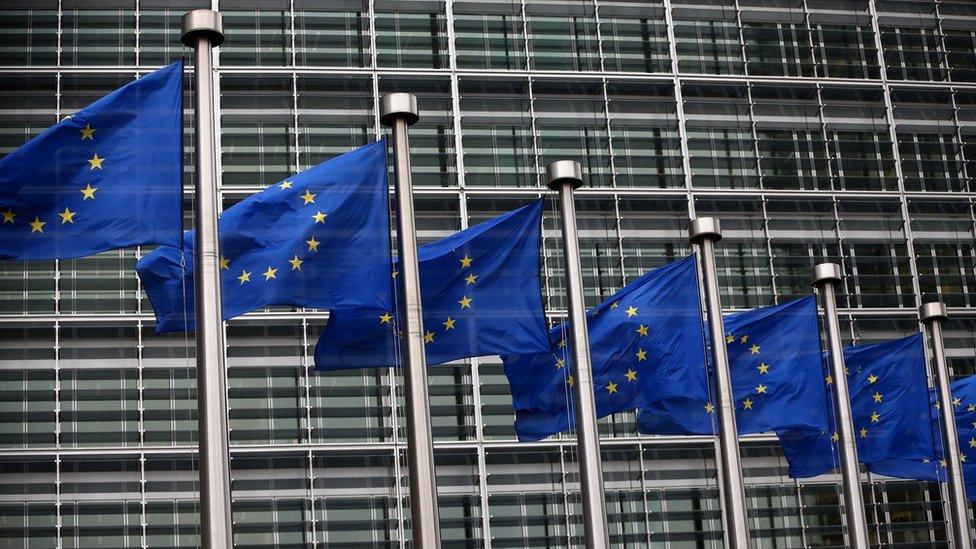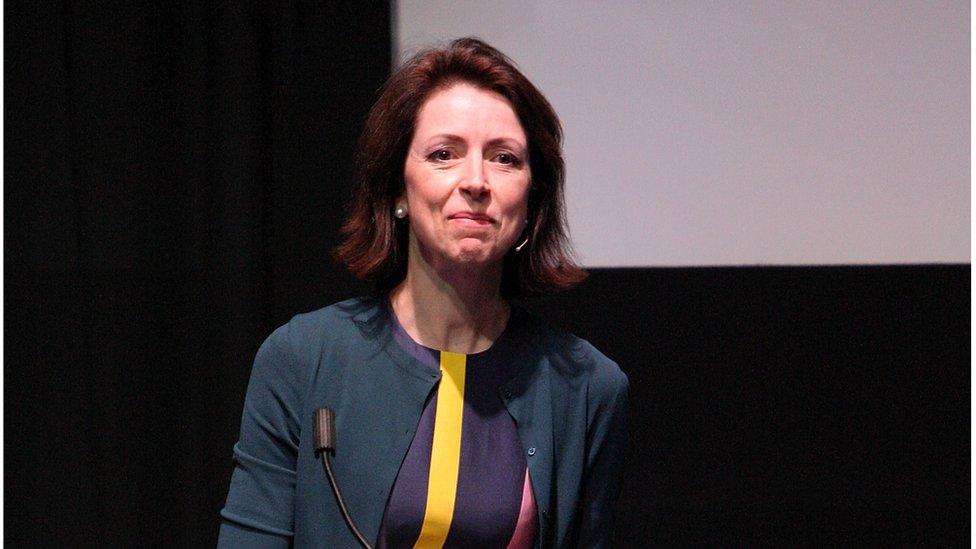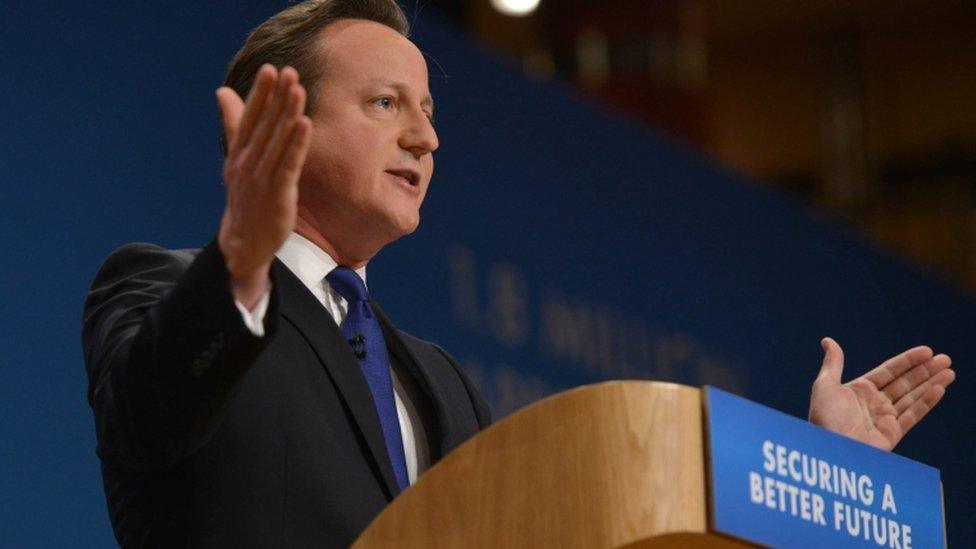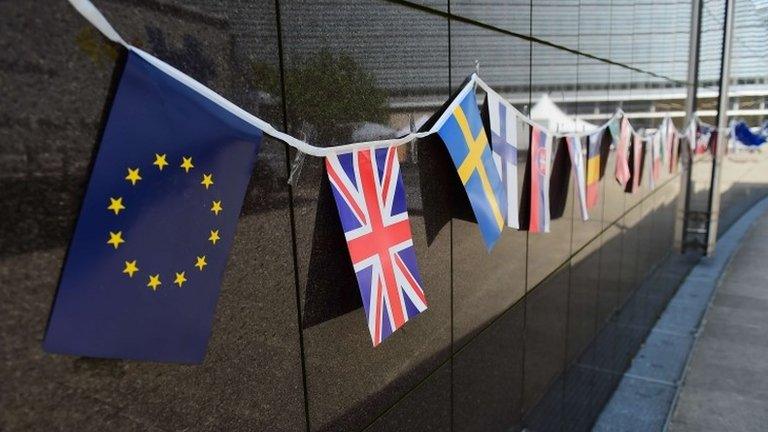Conservative conference: Businesses consider EU question
- Published

A topic of debate at this week's Conservative Party conference will be the UK's relationship with Brussels ahead of a referendum due in 2017.
The UK's businesses are considering what reforms, if any, will be best for them.
Helena Morrissey, chief executive of Newton Asset Management, told the BBC the EU was no longer fit for purpose.
But co-founder of Innocent Drinks, Richard Reed, says the UK gets a lot more out of the EU than it thinks.
David Cameron, who has said he wants the UK to remain in a reformed EU, is busy trying to renegotiate Britain's terms of membership of the European Union.
"As a nation we have done so well by going out into the world, not from retreating from it," Mr Reed told Radio 4's Today programme.
'Ever-closer union'
His own firm, which was set up 15 years ago, is now trading with 17 countries across the EU. He said 50% of sales were into the EU, whereas 85% of the company's workers were in the UK, showing it's possible to get more out of the trading bloc than is put in.

Richard Reed says in or out are the only choices: "There's no hokey-cokey option"
"In the recession of 2008 if we had not had our European markets, we would probably have gone out of business," he added.
Ms Morrissey, who as well as running the fund manager Newton Asset Management is part of Business for Britain, which is lobbying for renegotiated terms for Britain's EU membership. She says she is concerned about the EU's "ever-closer union" and that "we have delegated a lot of decision-making".
"If we leave we would need to leave with good partnership with the EU... we could play our part as the UK on the world's stage," she said, dismissing the idea that an exit of the union would diminish the UK's international standing.
Status quo
"It would be a lot easier for Britain to negotiate trade agreements with individual countries," she said, pointing out that Iceland - not an EU member - has a trade agreement with China and has a much smaller population and economy than the UK.
Big companies have threatened to rethink basing their European operations in the UK should Britain leave the EU, including Goldman Sachs and Deutsche Bank.

Helena Morrissey says trade agreements can be made by Britain alone
"I do think big businesses want often to maintain the status quo" which can help them thwart smaller firms, said Ms Morrissey. And she maintained that the debate should not be about immigration: "We benefit hugely from having people come to us... for me that's not the issue here."
'Definitely in'
For Mr Reed: "Overall, we are stronger and safer and culturally more enriched in than out.
"Things we want to change we can change... you get to influence the rules much more if you are on the committee making them."
He said the union was not perfect, and he would like to "improve the situation", but the vote would be "binary, in or out". For him, it is "definitely in".
The head of GE, the US conglomerate which makes everything from jet engines to trains and medical equipment and employs 17,000 people in the UK, told the Daily Telegraph, external that it did not matter if the UK remained in the European Union.
Jeff Immelt told the newspaper the UK was an "export country" that had "good relationships around the world". He also said that the formation of a union between European countries similar to the one shared by states in the US was probably not going to happen in his lifetime.
- Published3 October 2015

- Published17 February 2016
